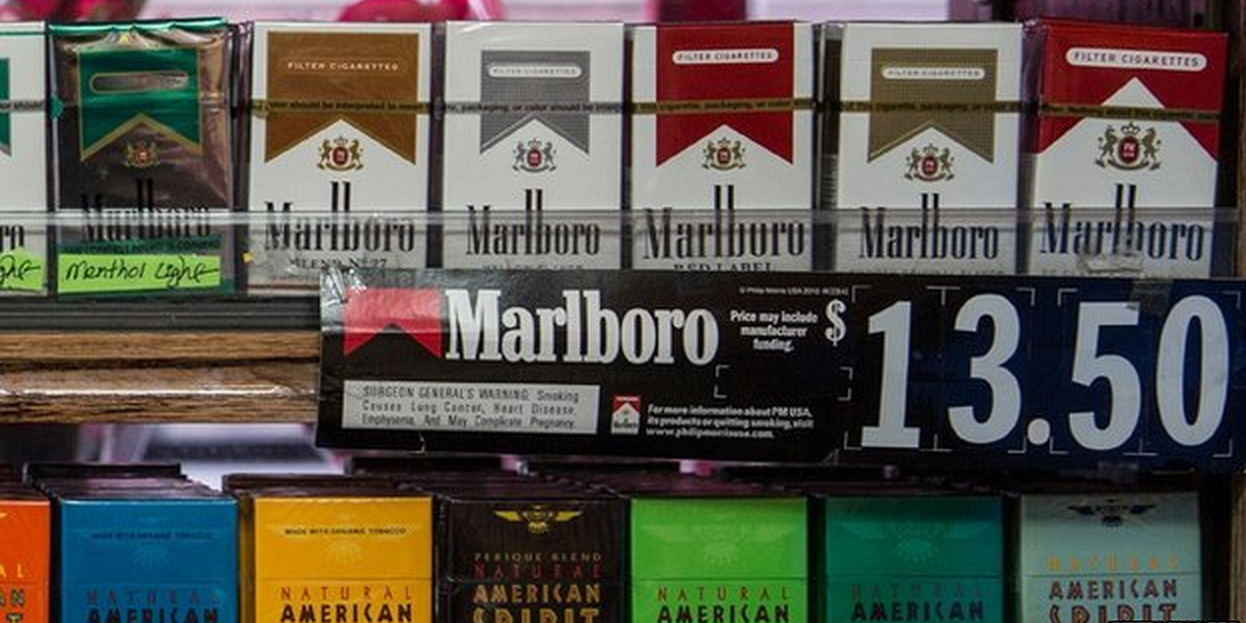Eric Garner’s death is forcing the country to rethink police tactics, but it should also force us to rethink state and local taxes—in this case, cigarette taxes.
Videos by Rare
States love to tax tobacco products, and that goes double—actually, it’s more like triple—for the blue states. According to the Tax Foundation, which tracks state cigarette taxes, New York has the highest rate, $4.35 per pack, followed by Massachusetts ($3.51), Rhode Island ($3.50), Connecticut ($3.40), Hawaii ($3.20), Washington State ($3.03), DC ($2.86), Minnesota ($2.83), New Jersey ($2.70) and Vermont ($2.62).
And the Tax Foundation’s survey excluded local taxes, which can be significant. New York City’s cigarette tax is an additional $1.50 per pack, for a grand total of $5.85. Chicago’s local cigarette tax, combined with the state’s tax of $1.98, pushes the total up to $6.16 per pack. And that doesn’t even include the cost of the cigarettes.
Are you noticing a pattern here? There isn’t a red state among them. Most of those states’ cigarette tax rate is less than a dollar.
As is true in so many cases, the left boasts that it is taking the high moral ground in imposing exorbitant tobacco tax rates. They claim those taxes force people to quit smoking.
Funny how the left never seems to think that high income tax rates force people and companies to quit making profits. But I digress.
Smoking rates have been dropping for decades, from a high of 45 percent of the population in 1955 to 20 percent today, according to Gallup’s polls.
There are a number of reasons for that decades-long decline, but the studies seem to be pretty clear that high tobacco tax rates don’t actually have that much of an impact on smoking, especially among lower-income people, who happen to have a disproportionately high smoking rate.
The New York Post reported two years ago on a state-sponsored assessment of its cigarette tax, “Despite New York’s several butt-tax hikes over the past decade, the study found no decline in smoking among low-income smokers. The lead researcher, Dr. Matthew Farrelly, openly conceded, ‘It may be that raising [cigarette] taxes does not work well for low-income smokers.’” [emphasis in original]
What high tobacco tax rates have done is increase cigarette smuggling significantly. And guess which state has the highest smuggling rate: New York. The Tax Foundation claims that 56.9 percent of cigarettes consumed in New York are smuggled. Those exorbitant tax rates create opportunities for low-income, unemployed people—which is where Eric Garner comes in.
High tax rates on anything always lead to people gaming the system, sometimes legally and sometimes illegally.
The other thing they do is increase state coffers, which has led a lot of skeptics to think that all the high-minded talk about creating a healthier population and protecting kids is really a smokescreen to siphon off more money.
So in their stated quest to reduce smoking, the states impose a high, regressive tax hitting mostly low-income people, who aren’t very likely to quit. The taxes foster black markets—in part because low-income people may not have the resources to drive across the state line to buy lower-taxed cigarettes—whereupon states feel compelled to crack down of those who are engaging in that arbitrage and undercutting state revenues.
High taxes never lead to the politicians’ intended results. Blue states need to lower all of their tax rates, but they should start with cigarettes.



